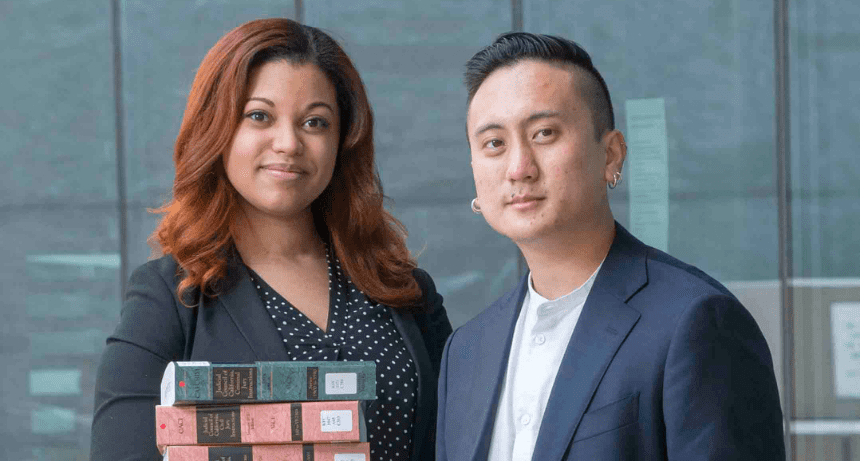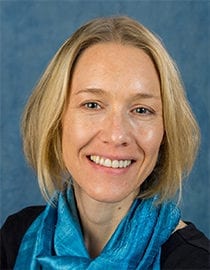
In recent years, state and local governments have introduced copyright restrictions that make it harder for people to access and understand the very laws that affect their lives — even though the public’s right to those laws is firmly rooted in cases dating back to the 1800s.
Working to keep laws free and available to the public, the Samuelson Law, Technology & Public Policy Clinic is pushing back. Last year, after filing an amicus brief on behalf of four library associations arguing that the law belongs to the public domain, the clinic celebrated a Supreme Court ruling that Georgia cannot claim copyright over its annotated legal code.

Now, the clinic wants California’s courts to remove all copyright restrictions from official jury instructions. Working with Director of Policy Initiatives Jennifer Urban ’00 and Teaching Fellow Juliana DeVries ’17, 2Ls Jennifer Hewitt and Blaine Valencia researched and wrote a proposal in 14 weeks while leading meetings, consulting with experts, and recruiting supporters.
“I came into this whole clinic experience thinking of it as task-oriented. Instead, we got to take full charge and craft our project in the way we wanted to,” Valencia says. “This was absolutely a thrill.”
The proposal to the Judicial Council, which controls California’s courts, argues that jury instructions don’t merit copy-right protection because they are not original enough and law is not copyright-able. Nearly 500 law student organizations, students, professors, librarians, and legal practitioners have signed on in support.
“We really got to flex some different lawyerly muscles,” Hewitt says. “It required a lot of creativity in crafting the various arguments.”
The COVID-19 pandemic has made obtaining legal materials tougher than usual with limited to no public access to courts and law libraries.
DeVries says jury instructions directly affect every aspect of civil and criminal trials, particularly appeal strategies, and that access restrictions are “especially troubling” for people representing themselves in a post-conviction case.
As Urban explains, incarcerated people don’t have internet access to down-load the instructions “and having to buy a $300 book is likely going to be completely out of reach.”
Partnering with Public.Resource.Org as it did on the Georgia case, the Samuelson Clinic keeps earning rave reviews.
“I was blown away by the work Blaine and Jennifer did and the sup-port they got from their clinic faculty,” says Public.Resource.Org founder Carl Malamud. “This is one of the best pieces of work we’ve seen from a clinic program.”
—Sarah Weld
OPEN BOOK: 2Ls Jennifer Hewitt and Blaine Valencia are helping the Samuelson Law, Technology & Public Policy Clinic push for easier access to California’s civil and criminal jury instructions.